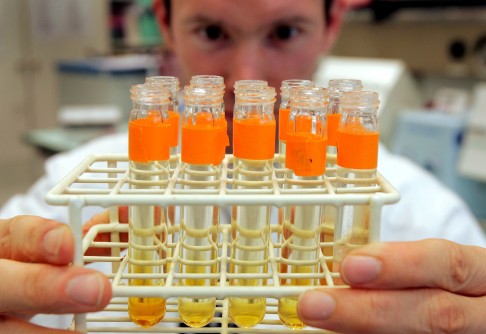
Under the radar: Uefa launches anti-doping measures as study reveals unusual testosterone levels
Report reveals samples high on testosterone, but governing body says there is 'nothing conclusive'
Whistles will blow across Europe today to kick off another testosterone-fuelled weekend of football. We hope to witness competitive theatrics from combustibles like Diego Costa and great goals amid the drama of sublime athleticism.
But is the football we watch the real deal - or is some of it fake? According to findings in a Uefa-commissioned study, a worrying number of players starring in the continent's most prestigious competitions may well be dope cheats.
The report - championed by European football's governing body as "the most extensive in the sport's history" - revealed higher than expected levels of testosterone in 7.7 per cent of the 879 footballers tested in the Champions League, Europa League and European Championship between 2008 and 2013.
The sport's integrity in the eyes of the supporters was clearly not Uefa's priority in publishing the report
Out of the 4,000 plus urine tests, 68 showed conspicuous levels of testosterone.
This might seem minuscule compared to the numbers that have disgraced athletics and cycling, but given many believe football to be free of doping, the report suggests otherwise.
Teams playing in Uefa competitions during that period included the England national side, as well as Manchester United, Arsenal, Chelsea, Manchester City and Liverpool.

Continental teams included the giants of Spanish, Italian and German football, such as Barcelona, Real Madrid and Bayern Munich.
The study did not reveal which teams the players who gave unusual samples represented. Of course, testosterone can occur naturally and from innocuous sources such as alcohol consumption.
But medical experts who studied the report said such a number across a sample group can also be the result of cheating.
That some of those tested exhibited "atypical" drug test results strongly indicated the possible use of banned substances, such as anabolic steroids, the experts concluded.
Worried by the findings, Uefa this month introduced strict new rules and adopted the World Anti-Doping Agency's biological passport scheme, the same used to combat doping in scandal-hit athletics.
It described the measures as "the strongest anti-doping programme ever seen in European football".
The new rules came into force for the start of the Champions League, and from January 1 next year, selected players will be tested for six months ahead of Euro 2016, where Uefa will conduct "the largest pre-tournament testing programme ever implemented".
On the face of it, Uefa has made an admirable, determined stance against a credibility-stripping threat and should be applauded.
But it is not, as it is want to portray, the fearless vanguard protecting the paying public - aka we the fans - from fraud.
Far from it. Uefa attempted to slip "the most extensive doping study in football history" under the radar by quietly publishing it online without a peep of publicity.

Thankfully, the study was leaked ahead of its publication to a UK newspaper and German broadcaster who collaborated to pull it apart and give it the publicity oxygen it deserved.
The media ran the findings past Julien Baker, a professor at the University of West of Scotland who has been researching steroid use for 20 years. If the findings are accurate, he said, "then this sheds light on previously untold levels of suspected cheating in Europe's top competitions".
He warned the pressure to get into the top divisions also suggests that "the problem may be even more prevalent in lower divisions because the players may be taking performance enhancers to make the step up".
Many insiders have long believed doping is more prevalent in football than the custodians of the game would care to admit.
In 2004, Arsene Wenger stated that some of his overseas players displayed symptoms consistent with EPO use and intimated they may have been doping at previous clubs.
Medical experts who studied the report said such a number across a sample group can also be the result of cheating
Hijacked by the media leaks, Uefa hastily insisted the study - conducted by 12 European anti-doping laboratories - did not provide "any scientific evidence" of deliberate doping.
It said "nothing conclusive" could be drawn from the findings, and said no players would face sanctions because the samples were "provided anonymously and no 'B' samples were taken".
This overly defensive, almost dismissive reaction to its own study being publicised placed a huge question mark over the principles held by the game's powerful European overlords.
The sport's integrity in the eyes of the supporters was clearly not Uefa's priority in publishing the report.
Instead, upholding football's squeaky clean image in the eyes of its advertisers, who demand innocence to maintain the credibility of their products, and its licence to print money was. By attempting to bury the report, these highly paid officials failed to reassure us they are acting with transparency.
If fans experience a rush of testosterone and beat their chests in anger at this undermining of their trust, they should not be surprised.

